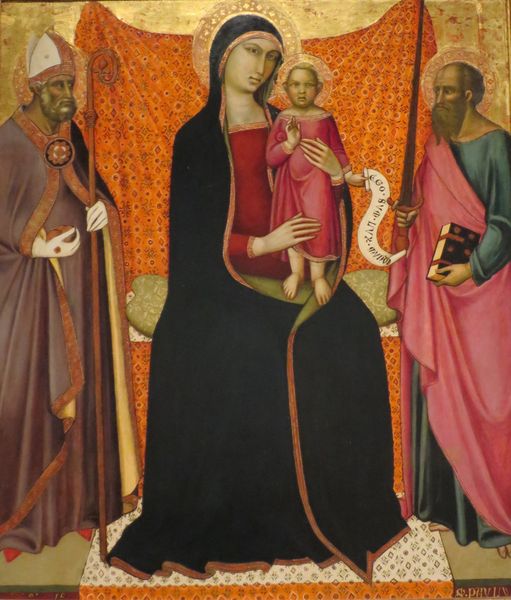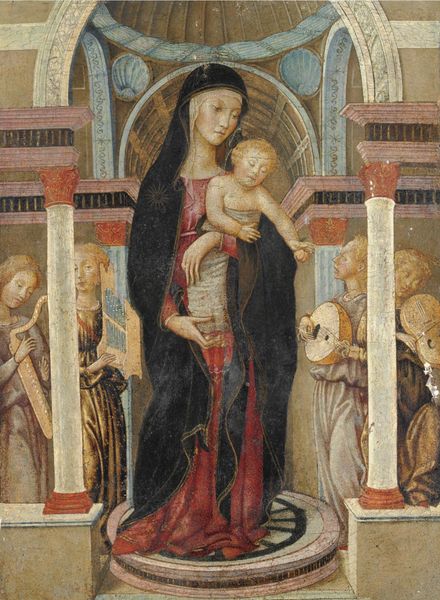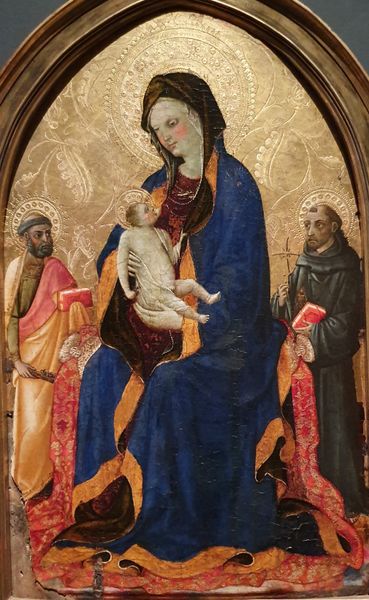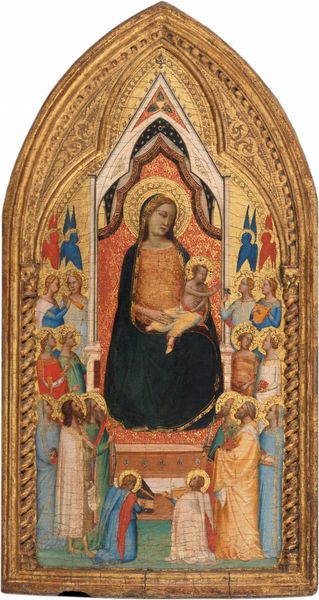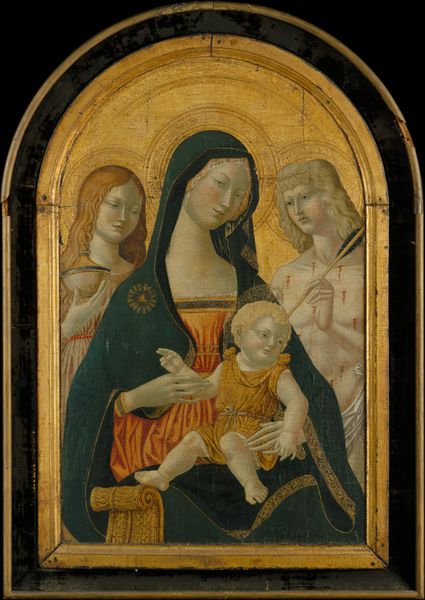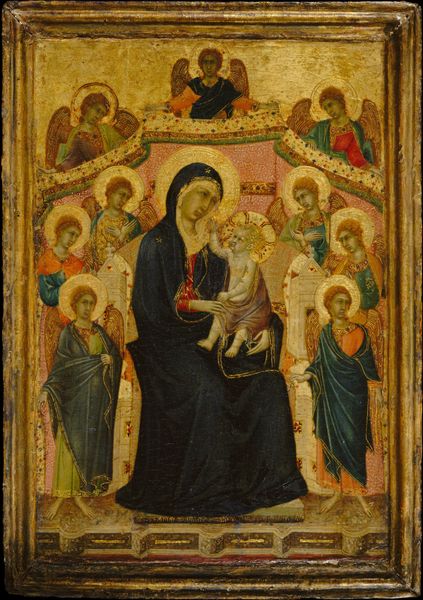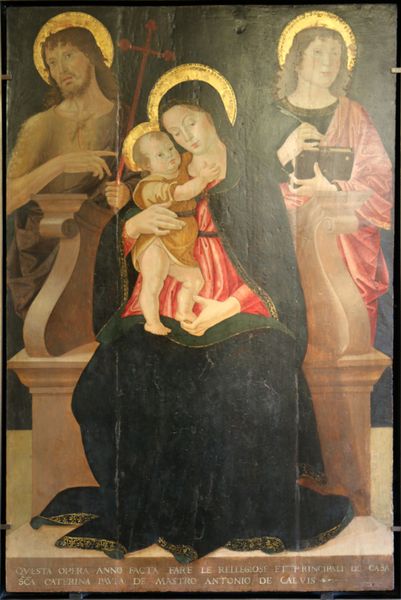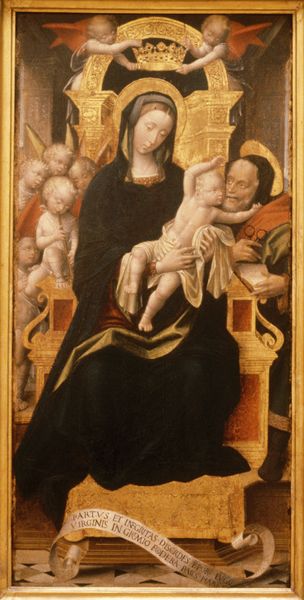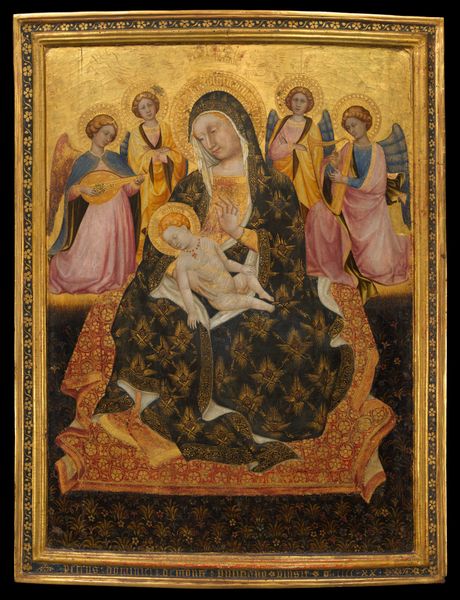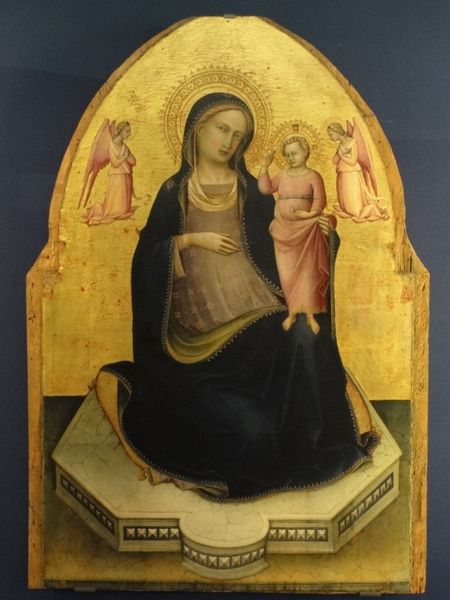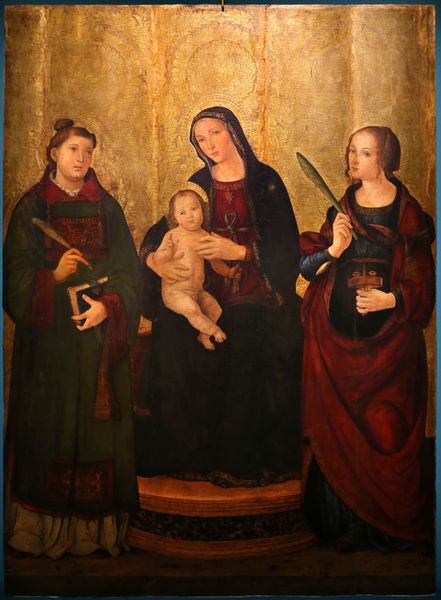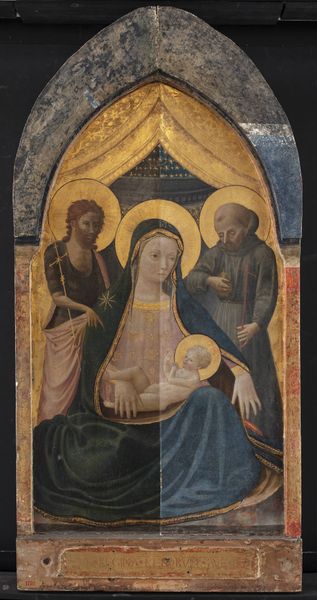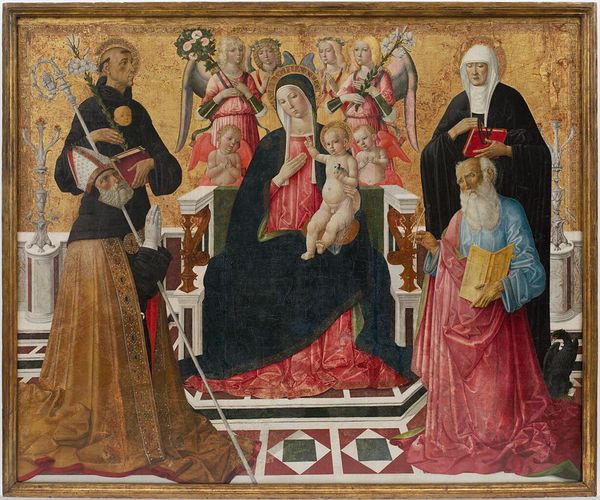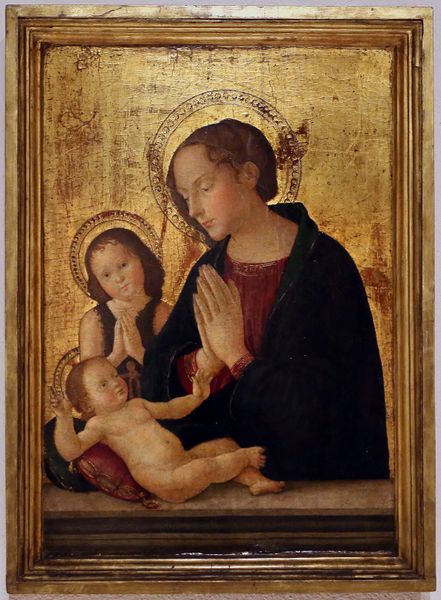
tempera, painting
#
portrait
#
tempera
#
painting
#
figuration
#
oil painting
#
framed image
#
underpainting
#
central focal point
#
history-painting
#
italian-renaissance
#
watercolor
Copyright: Public domain
Luca di Tommè created this painting of the Madonna and Child with Saints Nicholas and Paul around the 1360s using tempera on a wooden panel, a method common in the Sienese tradition. The luminous gold leaf background, meticulously applied, signifies the divine realm, contrasting with the more earthly, muted tones of the figures' robes. Notice the detailed, repetitive patterns on the fabrics and the halos, achieved through punching and tooling the gold, indicating a labor-intensive process. The tempera paint, made from egg yolk and pigment, gives a matte finish, enhancing the painting's delicate detail and contributing to its iconic, timeless quality. Such works, commissioned by wealthy patrons or religious institutions, highlight the economic and social structures of the time. The value wasn’t just in the image, but also the extensive labor involved in the materials and their application. By understanding these material processes, we can appreciate how this artwork bridges craft and fine art, revealing much about the period's values and skills.
Comments
No comments
Be the first to comment and join the conversation on the ultimate creative platform.
